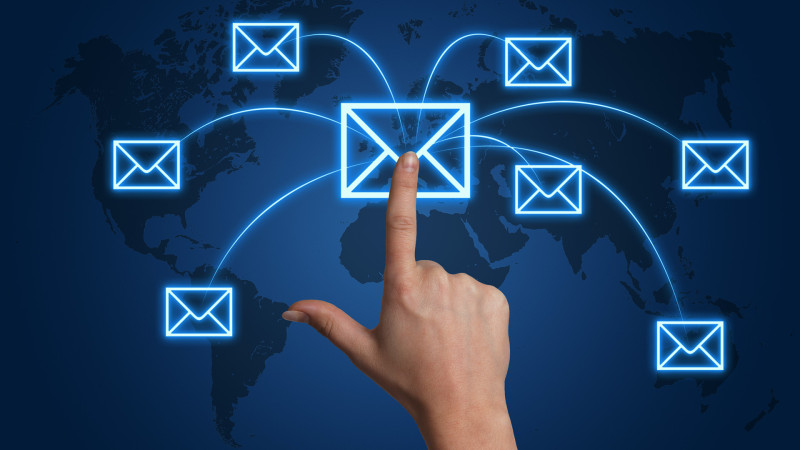It is important to take into consideration a variety of factors when purchasing an CPA email list. This will help ensure that the list you buy is of top quality, in compliance with legal standards and relevant to your company's goals. Here's what you need to take into consideration: 1. The Quality of Data and the Accuracy
The source of the data: Check the origin of the list. Most trustworthy providers get their information from reliable sources like directories of professionals, and databases. Avoid lists that are created by scraping, or unreliable sources. They may include inaccurate information.
Verification Process: Ensure the email list is recently verified. This can lower bounce-rates and ensure that you are reaching legitimate email addresses. Ask how often the list is cleaned and updated, as CPAs often change their jobs or companies.
Segmentation and Filters: A great CPA list should offer segmentation options, such as geographical location (city or state, country), industry specialization (e.g., auditing, taxation, financial planning) years of experience or firm size. These variables can be utilized to improve the relevance of marketing campaigns, allowing more precise targeting.
2. Legal Regulations
Data Privacy Laws - Ensure that the email list is compliant with laws and regulations at the national level including the California Consumer Privacy Act. Lists must only contain legal emails.
Conformity to CAN SPAM Act: To ensure that U.S. campaigns comply with CAN SPAM Act, which regulates commercial email marketing, the list needs to be in compliance. It is important to provide opt-out options and refrain from using subject lines that are misleading or content. Failure to comply can result in fines and other legal issues.
Choose to opt-in consent. Make sure you have email addresses by opting-in, i.e. recipients agreeing to receive emails. This decreases the chance of receiving spam complaints. It also increases engagement.
3. Provider Reputation
Examine the reputation of the provider. Review case studies, reviews, and testimonials to gauge the experiences of customers who have used them before. Established companies with a record of success are more likely to offer accurate and high-quality information.
Transparency: Providers should be transparent in how they collect information and how often it's updated. If the service provider isn't able to clearly explain how they collect data, it's a red flag.
Customer Support: If you require assistance with list customization or troubleshooting, as well as knowing the compliance requirements it is crucial to have a reliable customer service. Support that is efficient can cut down time and effort in the course of your campaign.
4. Cost and ROI
Pricing Models. The providers offer a variety of pricing options. Some charge per contact, while others have per-contact fees or a subscription. Examine the costs in relation to the ROI expected and then weigh your price against the value of your list.
Refund Policy: Discover the policy that allows for replacements or refunds when a certain number of emails were not correct or invalid. A guarantee can ensure your security.
Don't focus on price only. The cheapest lists might look attractive however, they could be prone to low bounce or engagement in the case of less quality. It is recommended to purchase lists with precise information and options for segmentation.
5. Data Ownership and Usage
Purchase the list one time or buy it multiple times. Single-use databases might be less expensive, however you will have greater flexibility in the long run when you purchase the database.
Shared lists: Determine whether your email list is shared or exclusive. Shared Lists: Determine whether the list of email addresses belongs solely to you or if it's shared with other customers. Shared email lists may cause audience fatigue when recipients receive a flood of emails from various organizations.
6. Data Integration and Format
CRM compatibility: Ensure that the list you receive is in a compatible format with your email marketing or CRM software. Examples include CSV and Excel. This ensures the easy transfer and management of the data.
User-Friendliness: Find out how easily data can be separated and managed following the integration with your system. A well-organized list can allow you to personalize and target more effective.
7. Ethical Aspects
Relevance of Content CPAs are highly-skilled professionals, so it's important to send relevant, value-driven content. Sending irrelevant messages can harm your brand's reputation or cause more complaints about spam.
Be mindful of the frequency with which you send out emails to people who are on your list. Over-communication will lead to spam complaints and unsubscribes. Additionally, it can affect the reputation of the sender.
The article's conclusion is:
Consider the accuracy of the data, legal compliance as well as the credibility and track record of your CPA email provider, to make sure that you get value for the money you spend. A well-planned segmentation strategy will allow you to get the most out of your ROI and engagement. Check out the best cpa email list for blog examples.

Top 10 Points To Consider When Buying An Email List To The Gas And Oil Industry
It's crucial to think about a number of factors prior to purchasing an email list within the gas and oil industries. This will guarantee that the list contains high-quality information legally compliant and is highly targeted. Here are the top ten points to consider:
1. Relevance of the target audience
Make sure that the list of email addresses is targeted at the natural gas and oil industry. A segmented list should contain professionals such as engineers and geologists, managers, and decision makers from upstream operations, midstream operations and downstream operations.
Job Titles and Roles: Seek out a list of job titles and roles that includes the right key decision makers (executives engineers, managers, etc.) The businesses you're looking at will have a list of the right decision-makers (executives engineers, managers, executives and so on.).
2. List Source and Vendor Reputation
Reputable List Providers: Purchase only from companies that sell email lists who follow best practices. Avoid sources with questionable origins since they can cause poor-quality data, or even legal concerns.
Data Quality: Conduct a thorough research or request testimonials to assess the data provider's quality.
3. Quality and Freshness of the Data
Data Age: The database must be current with up-to-date contacts. Oil and Gas companies have frequent personnel changes. Contacts that are not up-to-date can cause a high bounce rate.
Verification Process: Make sure that the vendor is constantly checking and updating their database to eliminate inaccurate or non-responsive contacts.
4. Compliance with Regulations
Legal Compliance: Ensure that the list of users is in compliance with local and global regulations like GDPR, Can-SPAM and other which govern the usage of personal data. Infractions could lead to criminal penalties or legal risk.
Opt in Process: Verify whether the email address on the list was gathered with the permission of the recipients, i.e. they've chosen to be notified of messages.
5. Segmentation and Customization
Custom Segmentation A good list provider will offer options for segmentation based on certain factors like location or job position. These may include the size of the company and sub-sectors of the Oil and Gas industry.
Custom Filters based on the goals of your campaign you're aiming for, ensure that your list can be tailored to meet specific criteria such as geographical area, size of business, or any other requirements.
6. Delivery Rate
High Deliverability Rates A well-designed list of email addresses should have high levels of deliverability (normally 95 percent). A low-quality list's bounce rate can negatively impact your email marketing as well as the sender's reputation.
Testing and Metrics and Testing. You can ask the company to supply you with metrics for deliverability or previous performance data, to determine the performance of your checklist.
7. Volume in comparison to.
Quality over quantity: Ensure that the list is not just large, but also specific and exact. A more compact and quality list will be more effective than a generic and large one.
Engagement Metrics. Prioritize engagement over the number of contacts. A well-engaged audience will be more responsive to your marketing campaigns.
8. Cost structure and pricing
Transparent Pricing â Understand the pricing structure, regardless of whether it's a once-off or ongoing subscription. Be wary of lists that are cheap or expensive lists. They might not provide any value or quality.
Return on Investment (ROI) and compare costs of the list against the expected conversion rates. It's sometimes cheaper to pay more for a list that has high conversion rates.
9. Privacy and Security of Data Privacy and Security
Data Protection: Make sure that the vendor uses strong methods to protect your data. The list service provider must ensure that personal information is protected from intrusion by unauthorized persons.
Confidentiality - Make sure the service will not share or sell data. This is particularly important in the event that you require security and confidentiality for your business.
10. Customer Support and after sales service
Customers will receive support on a regular basis from the vendor in the event you encounter issues or need assistance with your installation.
List Replacement Guarantee If there are problems with a list (e.g. incorrect information or insufficient delivery), an excellent provider will offer refunds or replacements.
By considering these factors You can ensure that you're buying an email list that's effective, legally compliant and in line with your business goals in the oil and gas industry. See the pro for site recommendations.
